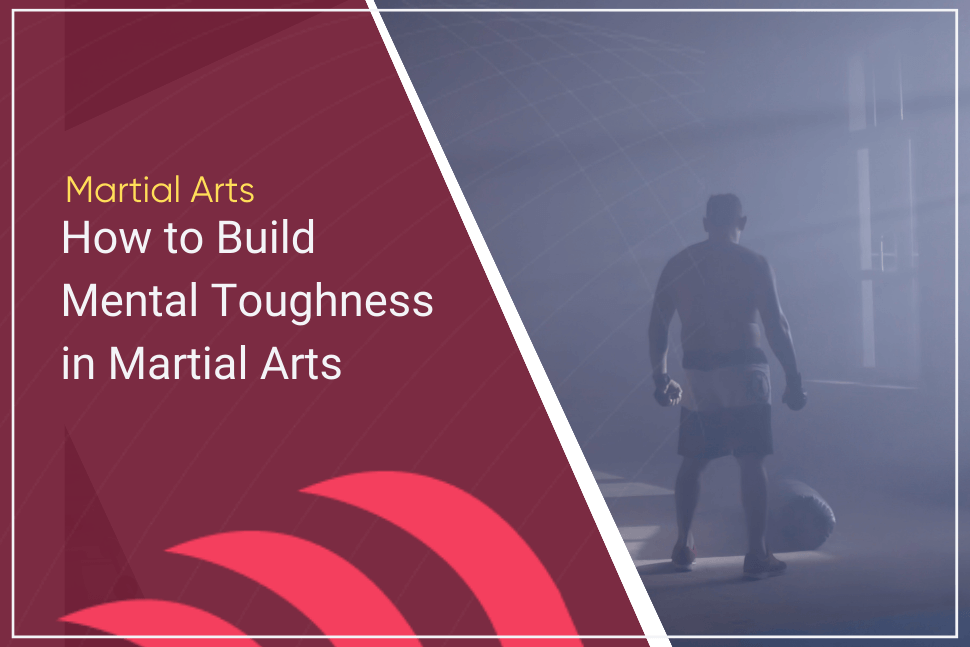When you think of the greatest athletes in combat sports, you think of people like boxing legend Manny Pacquiao, or MMA’s Khabib Nurmagomedov, or Gordon Ryan of No-Gi Submission Grappling. These athletes and athletes with similar accolades as the ones listed commit themselves to a lifestyle geared towards competitive success. While the elites of Martial Arts display world-class technique, bone-crushing strength and endless cardio, these are only a portion of what it takes to succeed in the realm of Martial Arts.
These attributes we can see, but what of the attributes we cannot see? Henry Cejudo, who has not only won an Olympic gold medal in Wrestling but also the UFC flyweight and bantamweight world title has been a poignant reminder that what separates the good from the great is mental toughness. Learning to lose, extinguishing your ego, embracing the parts that suck, and staying focused on your goal are all pivotal parts of this. Let’s talk about how to build that.
Learn to Lose
There are two possibilities in competition: You either win or you lose. Understanding the possibility of losing is separated from accepting defeat by a thin lining, but thriving in the former is one of the keys to developing mental toughness. It is actually a detriment to an athlete if they believe they are going to go their entire career without facing adversity of some sort.
Tom Brady was a 3rd string quarterback in highschool, a 7th string quarterback in college and the 199th pick in the 6th round of the 2000 NFL draft, yet colloquially we acknowledge him as the greatest NFL quarterback of all time. Adversity is the key to improvement just as heat, pressure, and friction is the key to forming a diamond from coal. Losses are opportunities to learn, setbacks are segments to regroup, mistakes are a part of the process. Don’t be afraid of defeat, learn to lose.
Your Ego is Your Enemy
Having an ego may seem like a fruit of mental toughness, but it is actually a weakness. The fall of many great athletes comes from ego tainting their mental toughness. Take Conor McGregor for instance – formerly poor, fighting in local shows in Ireland, yet he believed so strongly that he would be a UFC champion. This belief was the driving force behind his mentality, and that mentality turned him into the greatest superstar MMA has ever seen. The downturn came when his ego seemed to inflate.
Mental toughness without an ego is like a soldier who has fought many battles, and though he has won and lost, he has never given up. Mental toughness with an ego is like a bully who has won many fights, yet when he is inevitably on the receiving end of a beating his whole world comes crumbling down. Any mentality that makes you think unrealistically about what could happen in a contest is potentially dangerous, because adversity is a constant possibility.
Instead of imagining that every scenario is always going to work out in your favor, imagine how you would work your way out of every situation that could come your way. Train not for the possibility of a one-punch KO in the first round but for a grueling war that goes down to the wire, and you’ll not only appreciate your wins that come easier more, you’ll develop a mental toughness that is ready for any situation. Your ego will tell you lies that lead to complacency in your training, sleep and diet. Don’t think you are more than you are and get to work.
Embrace the Parts that Suck
Now we are getting down to the nitty-gritty. To start, I’d like to acknowledge that it is not necessarily a bad thing to admit that there are some parts of training in martial arts that absolutely suck. There is a common debate over the efficacy of drilling techniques for hours on end in hopes to build muscle memory, though both sides of the fence can certainly agree that it can be a grueling part of improvement across various practices in martial arts.
This is not to say that drilling is always a test of mental endurance because some people do enjoy this process, but it does serve as an example. Every individual practitioner of martial arts is their own human being with their own life story, and with those unique backgrounds can come unique struggles with training. The trick to mental toughness is not to find an easier way to do things that are mentally and physically taxing, but to embrace them as nothing more than a part of your improvement.
For you, it could be waking up a bit earlier to go on a run, or maintaining a strict diet, or studying film, or practicing techniques at home in the mirror for perfection, or a grand number of other things. The point remains – the relationship you have with the difficult side of martial arts is directly proportional to your mental toughness.
Look Ahead and Nowhere Else
There is a famous picture of Michael Phelps winning the Olympic Gold Medal in the Men’s 200m Butterfly. The silver-medalist from South Africa, Chad Le Clos, is in the next lane looking to his right, directly at Phelps, who is looking straight ahead. What this picture reveals in this context is the importance of avoiding comparison.
Earlier I expressed the point that Your Ego is Your Enemy, and this next point is closely related to that one. You see, pride is often wielded like a double-edged sword in our society. People are sometimes so proud of everything about themselves that they refuse to accept any sort of criticism, yet the other side of the blade reveals their deep insecurity and addiction to comparing themselves to other people who have what they don’t.
You are you, they are them. Le Clos may have won the race if he was more focused on what Phelps was focused on, which was that final push to win the race.
Now how does this tie into martial arts? You are going to be in class with many other people, and you’ll likely feel the temptation to start comparing yourself to your peers of equal rank. Don’t get lost in trying to beat your training partners every class so you can rank up, fall in love with improvement rather than results.
You can’t help that you never wrestled, yet the other white belt did, you can’t help that the gymnast is learning to kick faster than you. You can, however, exercise mental toughness by not only helping yourself by Embracing the Things that Suck, but by extending help to your peers. Though it sounds cliché, a poignant fruit of mental toughness is the willingness to sharpen your teammates as they sharpen you. If they get better, you get better, it’s that simple.
Conclusion
In conclusion, mental toughness in martial arts is built through learning that losses are not indications of your future but of your present, and that is a huge part of the learning process. It’s built through not just leaving your ego at the door, but sacrificing it completely. Mental toughness comes from serving your ambitions in the face of tiredness, soreness, cravings and fears, embracing the parts of training that are not fun.
Do all of these without grumbling or complaining, and don’t compare your journey with your peers. It’s one thing to be inspired by people who already have what you are training for, it’s another thing entirely to pad your insecurity with your day-to-day results in the training room. Regardless of the martial art you practice, these principles can be a blueprint for toughening up the side of your success that no one will know, but everyone will see.
 Gym Owner Statistics: The State of Gyms, Member Trends, and Usage Data
Gym Owner Statistics: The State of Gyms, Member Trends, and Usage Data



